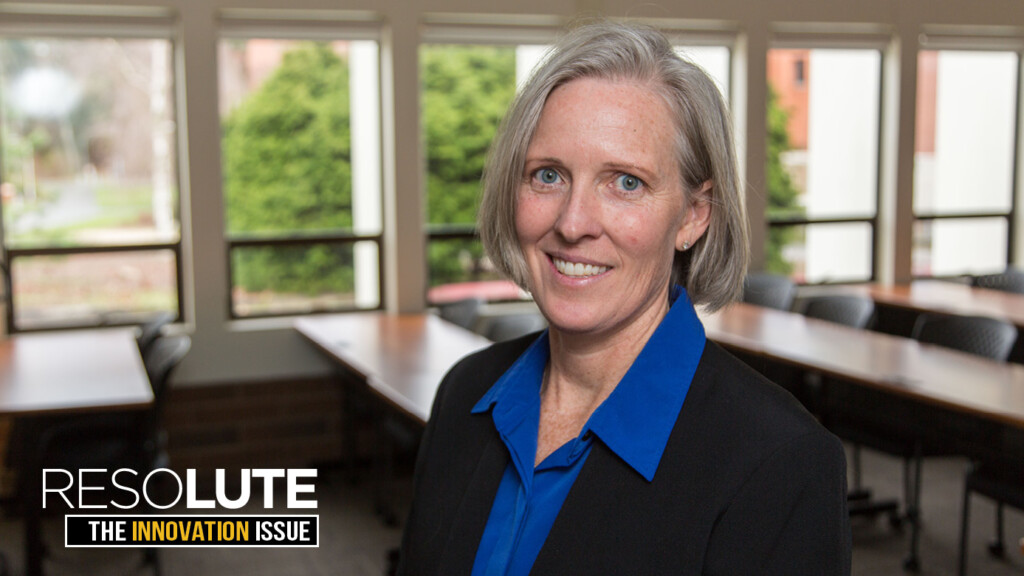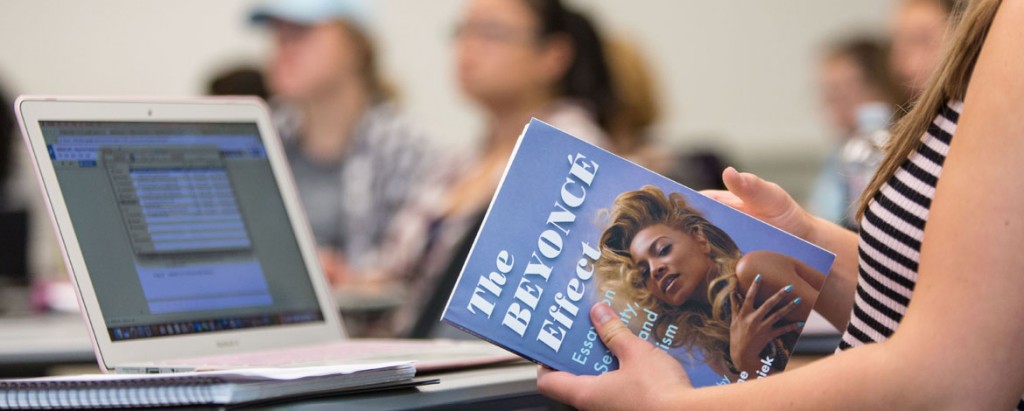Page 5 • (727 results in 0.064 seconds)
-

Associate Vice President Karen McConnell , Ph.D., recently stepped into a new role. It’s not only new for her, but also for PLU. She is the school’s first chief institutional effectiveness officer. McConnell explains that in this role she will help ensure that evidence-based decision-making…
Karen McConnell embraces innovation as PLU’s first chief institutional effectiveness officer Posted by: Zach Powers / June 5, 2022 June 5, 2022 By Lisa Patterson ’98ResoLute ContributorAssociate Vice President Karen McConnell , Ph.D., recently stepped into a new role. It’s not only new for her, but also for PLU. She is the school’s first chief institutional effectiveness officer. McConnell explains that in this role she will help ensure that evidence-based decision-making is being used
-

PLU professor and psychology department chair Tiffany Artime and her collaborator from Wellesley College Centers for Women are leading a team of researchers and stakeholders who envision a future where evidence-based trauma treatments are integrated into university counseling services, empowering students to thrive. Artime and…
Modernizing Mental Health Professor Tiffany Artime co-leads a project that’s moving mental health support on college campuses forward Posted by: mhines / September 6, 2024 September 6, 2024 By MacKenzie HinesMarketing and Communication PLU professor and psychology department chair Tiffany Artime and her collaborator from Wellesley College Centers for Women are leading a team of researchers and stakeholders who envision a future where evidence-based trauma treatments are integrated into
-
D.N.P. Program for B.S.N. (Prepared Registered Nurses) The Doctor of Nursing Practice program is designed for nurses seeking a terminal degree at the highest level of nursing practice.
be leaders in the nursing profession. The D.N.P curriculum consists of core coursework (theory, advanced practice roles, evaluation and outcomes research, leadership and management, and advanced health promotion, information systems and patient care technology, epidemiology, analytical methods, translating research into practice, and health policy), a D.N.P. Final Project and the specialty track coursework for either the Family Nurse Practitioner or Psychiatric Mental Health Nurse Practitioner
-
Music faculty and staff.
Jennifer Rhyne Associate Professor of Flute and Music Theory Full Profile 253-535-7058 rhynejl@plu.edu
-

The Innovation Studies program is excited to welcome Professor Junichi Tsuneoka as incoming director of the Innovation Studies minor. Professor Tsuneoka teaches design theory and practice in the Department of Communication, Media, and Design Arts at PLU. His professional work includes design projects for Nike,…
Meet Professor Junichi Tsuneoka Professor of Design Appointed Director of Innovation Studies Posted by: Liza Conboy / August 20, 2024 August 20, 2024 The Innovation Studies program is excited to welcome Professor Junichi Tsuneoka as incoming director of the Innovation Studies minor. Professor Tsuneoka teaches design theory and practice in the Department of Communication, Media, and Design Arts at PLU. His professional work includes design projects for Nike, Adidas, Brooks, Google, Microsoft
-

The Innovation Studies program is excited to welcome Professor Junichi Tsuneoka as incoming director of the Innovation Studies minor. Professor Tsuneoka teaches design theory and practice in the Department of Communication, Media, and Design Arts at PLU. His professional work includes design projects for Nike,…
Meet Professor Junichi Tsuneoka Professor of Design Appointed Director of Innovation Studies Posted by: halvormj / August 15, 2024 August 15, 2024 The Innovation Studies program is excited to welcome Professor Junichi Tsuneoka as incoming director of the Innovation Studies minor. Professor Tsuneoka teaches design theory and practice in the Department of Communication, Media, and Design Arts at PLU. His professional work includes design projects for Nike, Adidas, Brooks, Google, Microsoft, and
-

TACOMA, WASH. (Sept. 15, 2017)- Pacific Lutheran University students are people of many interests. This semester, several courses illustrate how the university’s curriculum caters to those eclectic interests. Beyoncé and Black Feminist Theory “Who Beyoncé is for?” is not usually a question that you ask…
university's curriculum caters to those eclectic interests. Beyoncé and Black Feminist Theory“Who Beyoncé is for?” is not usually a question that you ask when you’re bopping your head to “Single Ladies,” or “Partition,” or any of the other hundreds of hit songs that have made Beyoncé a worldwide music icon. But it is just one of the questions students will tackle in the Women’s and Gender Studies course titled “Beyoncé and Black Feminist Theory.” “The general premise of the course is to think about Beyoncé
-

Museums collect and interpret objects, and the stories they tell with their collections articulate cultural identity and values. Based in the historic university city of Oxford, this J-term 2020 class will explore how museums make meaning. Students will study numerous examples of contemporary museum theory…
How Museums Make Meaning: Study Away J-term 2020 Posted by: Reesa Nelson / December 4, 2019 December 4, 2019 Museums collect and interpret objects, and the stories they tell with their collections articulate cultural identity and values. Based in the historic university city of Oxford, this J-term 2020 class will explore how museums make meaning. Students will study numerous examples of contemporary museum theory and practice, engage with local professionals, and participate in museum-based
-
Prerequisites: Biology 205 - Human Anatomy and Physiology I Biology 206 - Human Anatomy and Physiology II Chemistry 105 - Chemistry of Life (Intro to Organic and Biochemistry) Biology 201 -
& Physical Assessment (3) Nursing 308 – Clinical Practicum I (3) Nursing 309 – Professional Foundations & Principles of Leadership (2) Nursing 310 – Scholarly Writing Concepts (1) Semester 2 Nursing 311 – Patho/Pharm II (2) Nursing 314 – Care of Chronic Conditions (3) Nursing 315 – Psych/Mental Health (2) Nursing 316 – Clinical Practicum II (5) Nursing 317 – Theory & Evidence (1) Nursing 318 – Research Methods (2) Nursing 319 – Healthcare Technology (1) Senior YearSemester 3 Nursing 401 – Care of Complex
-
School of Music, Theatre & Dance faculty and staff.
Jennifer Rhyne Associate Professor of Flute and Music Theory Full Profile 253-535-7058 rhynejl@plu.edu
Do you have any feedback for us? If so, feel free to use our Feedback Form.


